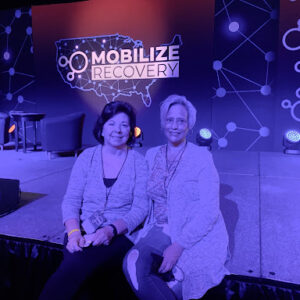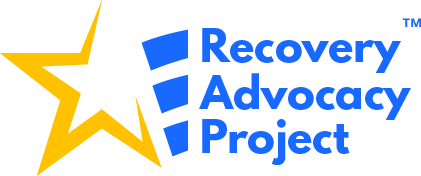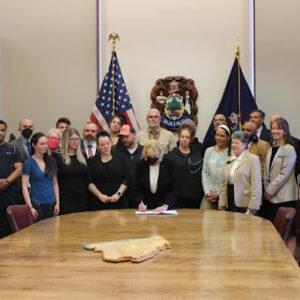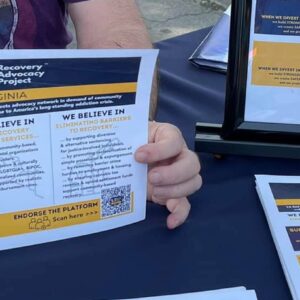Pattie Vargas is a speaker, author, recovery advocate, coach, mother and RAP team member located in northern California. She is also very familiar with Substance Use Disorder (SUD) and recovery, as two of her children have been touched by addiction.
Pattie’s daughter, Becca, is currently five months in recovery and living in Kentucky, and Pattie couldn’t be more proud. Her son, Joel, sadly died in 2017 from a drug overdose, and it was around that time that Pattie commenced her quest to make a difference in the lives of those in recovery and with SUD.
“Back in the early days, I didn’t know what the hell I was doing,” Pattie laughed as she explained how her first time advocating was at her husband’s men’s ministry event. “They were having booths, and I knew I needed a booth there to talk about drugs and recovery.”
Pattie has come a long way since that day and is now a powerful parent coach and family advocate, and is also involved with the Partnership to End Addiction. She wholeheartedly believes that families need a role and a seat at the table.
“Even more than allies, we are people impacted by addiction,” she said. “It impacts all of us.”
Pattie explained how her experiences getting treatment for two of her children inspired the California RAP platform to create a community of care in California. “It was barrier after barrier after barrier,” explaining the difficulty she faced trying to get Joel into a California treatment center. In contrast to her experience in California, she easily got Becca into a welcoming and medical treatment center in Kentucky.
“If my kid had diabetes or cancer, they would be seen by a medical doctor who would be directing their care, and then there is follow-up care, check-ins, support communities and ongoing medication,” she said. “A parent should not have to desperately search the internet for help.”
This year, Pattie and California RAP team members got to work. California RAP created its platform after a listening session revealed that there was not a robust continuum of care for those who need treatment and support.
“The continuum of care was missing in our communities,” Pattie explained. In California, everything is done at the county level which creates barriers and obstacles, she said. One county may be very progressive and another can be hostile to recovery.
As stated in the California Overdose Surveillance Dashboard, there were 5,502 opioid-related overdose deaths in 2020, the most recent calendar year of data available. This represents a 126% increase from 2018. Opioid-related emergency room visits are also up, yet surprisingly, buprenorphine prescriptions are down 11% since 2018.
In an effort to remove barriers and create a recovery-ready community for all of California, the platform includes initiatives to invest in equitable recovery access for all communities, establish peer-run community centers to support recovery, reduce harm for people who use drugs by expanding access to community and health programs, and expand efforts to meet the needs of individuals prescribed medication.
Pattie believes that so many of the initiatives on the state RAP platform can become reality in Recovery Cafe spaces. The Recovery Café is an ‘alternative, therapeutic, supportive community, founded on the truth that every human being is precious and worthy of love regardless of their earlier trauma, mental and emotional anguish, addictive behaviors, or past mistakes.’ In the cafes, individuals have access to housing resources, social services, healthy connections, and linkages to education and employment.
There are presently nine Recovery Cafe locations in California, a huge state with 58 counties. “So many counties in California do not have a Recovery Cafe in them, which means so many folks do not have access to everything the cafes offer.”
Pattie wants to change that.
“If every community was able to have a Recovery Cafe in them, people would know where to go,” she said about the ambitious platform. “If they just got out of treatment and don’t have housing, at least there would be that place they could go to be with like people.” The cafe could be such a safety net for all those other gaps.
By the end of 2027, Pattie and the California RAP team plan on having a Recovery Cafe in each California county – which is part of their organizing statement. It may seem like a heavy lift, but they have no plan on slowing down.
“It’s brilliant,” Pattie spoke about the Recovery Cafe business model. “People have somewhere that will help hold them accountable where they can be with people like them and it’s education, camaraderie and a place of belonging. That is what’s needed!”
If anyone wants to join the California RAP team, please email Patti at [email protected].

Pattie Vargas and Tomasa Richmond at Mobilize 2021 in Las Vegas



